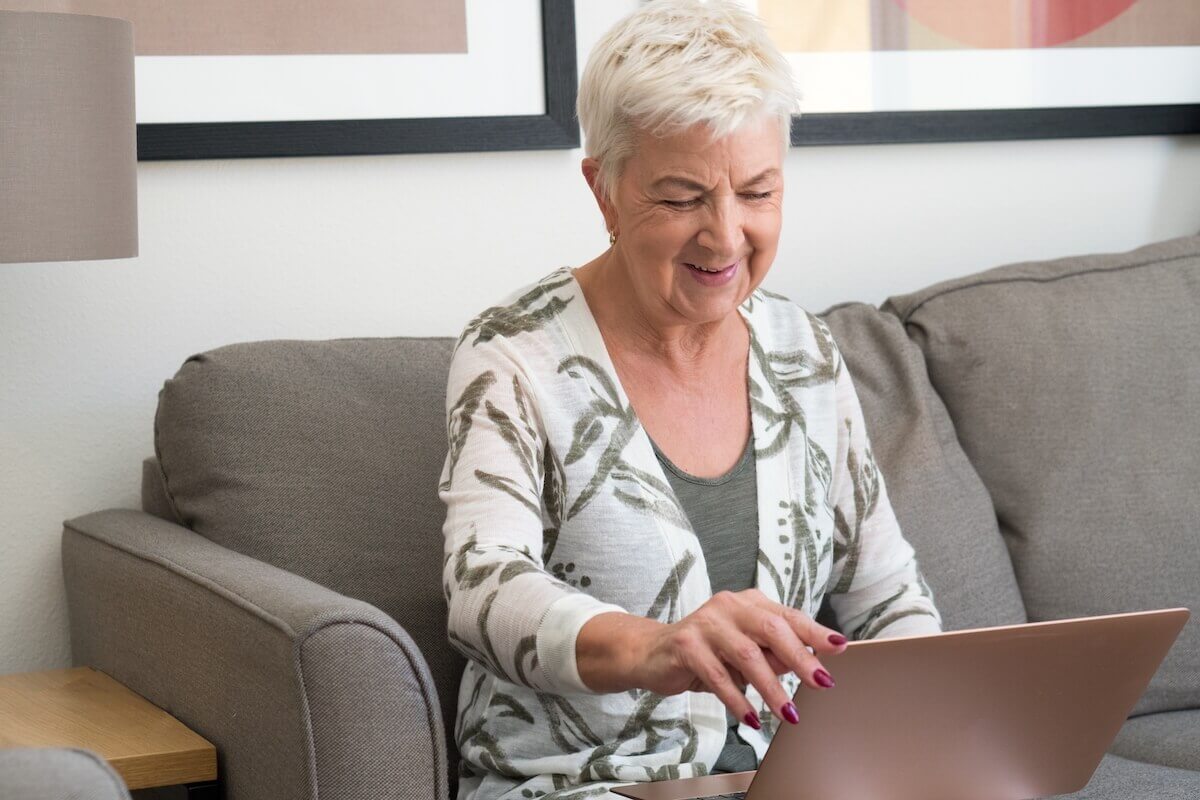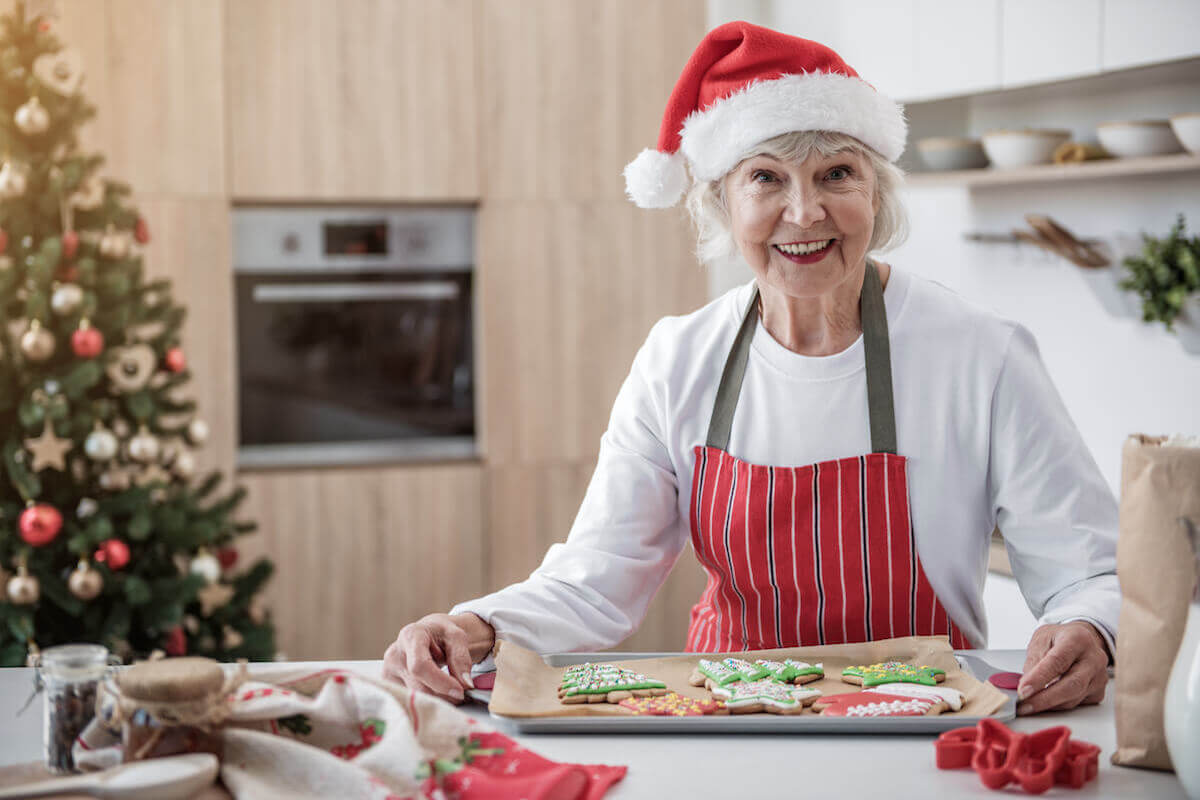Let’s Get Social: The Importance of Staying Connected
Posted By HarborChase on November 22, 2020Socialization is essential at every life stage. For young children, socialization is a crucial part of their development. It allows them to grasp the concept of communicating with others, understanding feelings, and learning appropriate interactions. For young adults, socialization can introduce them to people and perspectives different from what they’re used to, and often provide them with long-lasting friendships. For older adults, socialization can help prevent isolation, improve health, and create a feeling of community and belonging.
Whatever stage of life you’re in, socialization is essential—we thrive on connection, intimacy, and understanding. In addition, meeting new people and building relationships can pave the way toward unique experiences, new memories, and a healthier, more fulfilling lifestyle.
At HarborChase, with independent senior living communities throughout the United States, we understand how important it is to build relationships—especially for older adults. To encourage residents to live an active and social life, we provide countless social events and opportunities to socialize in our communities.
We want to share the value and benefits of socialization and how we implement and encourage socialization in our communities.
Importance of Socialization
While socialization is valuable at any age, it’s especially important for the older population, as they are at a higher risk of feeling lonely or isolated. There are several reasons for this: older adults are more likely to live alone, lose close family and friends, or have limitations that inhibit their social opportunities. Because of these factors, it’s believed that more than one-third of adults aged 45 and older feel lonely, and nearly one-fourth of adults aged 65 and older are socially isolated.
What’s the Difference Between Loneliness and Isolation?
Loneliness is an emotional state in which someone feels alone and separated from others, no matter how much social contact they may be having.
Isolation, on the other hand, is an actual lack of social contact. People who are isolated are physically separated from others and have little to no social connections.
Isolation in Seniors
Whether older adults feel lonely or not, physical isolation is a significant concern for a large number of them. According to the CDC, lacking social relationships can be associated with:
- An increased risk of dementia
- A 29% increased risk of heart disease and a 32% increased risk of stroke
- Higher rates of depression and anxiety
- Impaired immunity
- Poor sleep quality
Isolation During COVID-19
While isolation is already a significant issue, it has escalated during the COVID-19 pandemic. Efforts to reduce the spread of the coronavirus have included social distancing, self-quarantining, and simply staying at home.
For those that live alone, this has meant little to no human contacts for months. For the older population that is already susceptible to isolation, this has led to even more physical and emotional distress, which is why, now more than ever, socialization and connection are critical.
Why We Benefit From Socialization
Mental Health
It’s easy to assume that physical health is the only area of wellness that impacts longevity and healthy living. However, research has shown that mental health is almost equally as valuable as physical health.
Just as there are adverse health effects for being socially isolated, there are positive effects of being socially connected. Studies show that regular socialization and interaction with others can increase memory, reduce depression, and improve self-esteem.
Also, older adults who regularly participate in social activities and events feel a stronger sense of belonging and community. Having dependable friends or relationships can create a sense of support and care. All of these things work together to reduce stress and anxiety and improve overall mental health.
Physical Health
Mental health is closely related to physical health. According to Berkeley University of California, socialization can improve your cognitive function, making your brain sharper and more effective. In addition, the mental benefits of socialization like reduced stress can result in a stronger immune system, better sleep, lower blood pressure, reduced risk of cardiovascular disease—the list goes on!
Furthermore, researchers have proven that socially active seniors are more likely to develop healthier life choices and habits. Those who are social are also more likely to be more physically active, leading to a plethora of health benefits.
It’s clear that active and engaged seniors are reaping the benefits and increasing longevity, as well as living a healthier and happier life!
New Experiences and Purpose
After retirement, older adults can often find themselves lacking purpose or drive, leading to both loneliness and isolation. By getting out, socializing with others, and building relationships, you can begin to instill a sense of meaning and purpose.
Life can become much more fulfilling when we have places to go, things to do, and people who count on us. Regularly socializing with others can also make life more fun and enjoyable. You can meet new people, create new memories, and maybe even find a new passion!
Staying Social and Connected
Building relationships has been especially challenging recently, as stay-at-home orders and quarantine guidelines have further restricted socialization opportunities. But staying connected can go beyond in-person interactions.
- Video call with family and friends when you’re unable to see them in person
- Create a social media account to connect with new and old friends
- Enroll in a class at your local community college (learn online at your own pace)
- Play word or strategy games online with friends
Creating Opportunities at HarborChase
Moving to a senior living community can significantly benefit those looking to grow, enjoy their days, and connect with others. Senior living communities provide more opportunities for socialization than most older adults can create on their own. Beyond these opportunities, communities can offer support and care to adults who need additional assistance.
HarborChase knows the value of social interactivity and relationship building. Each of our independent senior living communities offers various activities that are meant to engage and excite residents and guests. There’s something for everyone to enjoy, from group fitness classes and clubs to cocktail happy hours and life story activities.
No one should feel alone or isolated. We provide all the tools necessary to make socialization and relationship building as easy as possible, including scheduled events and celebrations, transportation services, group dining experiences, and much more!
We’re All Human
By nature, humans are social creatures; we build relationships throughout our lives that help shape who we are and how we live. Though it can be challenging to find avenues to seek new friends and experiences—especially amid a pandemic—it is undoubtedly beneficial to health, happiness, and wellness. We encourage you to spend some time researching ways that you can get connected. (Even if it’s through a screen!)
If you feel lonely, isolated, or lack social opportunities, we encourage you to consider senior living. These communities are vibrant neighborhoods full of activities and experiences that you can share with peers and friends. While current COVID-19 restrictions prevent some of this interaction, we are still working diligently to ensure our residents are engaged and connected through drive-by parades, socially distant games, and virtual reunions with families.
HarborChase Senior Living has communities throughout the United States, offering independent living, assisted living, and memory care services. We invite you to find your ideal HarborChase community today and learn more!
Updated on November 22, 2020
Categories: Activities, Health Habits, Social Wellness


